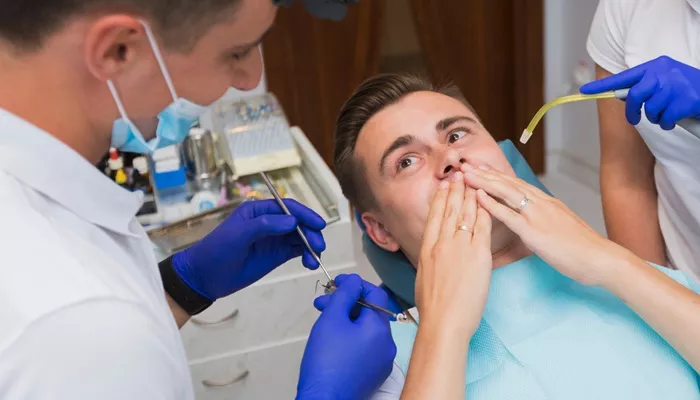Wisdom teeth, also known as third molars, are the last teeth to emerge in the mouth, typically between the ages of 17 and 25. However, their eruption can often be accompanied by pain and discomfort. In this article, we will explore various ways to relieve pain when wisdom teeth erupt, including home remedies, over-the-counter medications, and professional dental treatment.
Understanding Wisdom Tooth Eruption Pain
Wisdom teeth can cause pain for several reasons:
Lack of space: If there is not enough room in the mouth for the wisdom teeth to fully emerge, they may become impacted or partially erupted, leading to pain and swelling.
Infection: Partially erupted wisdom teeth are more prone to bacterial infection, which can cause pain, swelling, and redness.
Pressure: As the wisdom teeth push through the gums, the pressure can cause pain and discomfort.
Damage to adjacent teeth: Partially erupted wisdom teeth can rub against the adjacent second molars, causing pain and damage to the tooth enamel.
Understanding the causes of wisdom tooth eruption pain can help you better manage the discomfort and seek appropriate treatment.
Home Remedies for Pain Relief
1. Cold Compress
Applying a cold compress to the affected area can help reduce swelling and numb the pain. Wrap some ice cubes in a clean cloth and hold it against the cheek for 10-15 minutes, several times a day.
2. Salt Water Rinse
Rinsing your mouth with warm salt water can help reduce bacteria and soothe the pain. Mix 1 teaspoon of salt in a glass of warm water and gently swish it around the affected area for 30 seconds, then spit it out. Repeat this process several times a day.
see also: How to Know If Wisdom Teeth Are Infected?
3. Over-the-Counter Pain Medication
Non-steroidal anti-inflammatory drugs (NSAIDs), such as ibuprofen or naproxen, can help reduce pain and inflammation.
Follow the dosage instructions on the package or as directed by your dentist.
4. Clove Oil
Clove oil has natural anesthetic and anti-inflammatory properties that can help relieve pain. Soak a cotton ball with clove oil and gently press it against the affected area for a few minutes. Repeat this process as needed.
5. Warm Compress
Applying a warm compress to the affected area can help reduce pain and promote healing. Soak a clean washcloth in warm water, wring it out, and hold it against the cheek for 10-15 minutes, several times a day.
Professional Dental Treatment
If home remedies do not provide sufficient relief or if the pain persists, it is essential to seek professional dental treatment.
Your dentist may recommend one or more of the following treatments:
1. Antibiotics
If the pain is caused by an infection, your dentist may prescribe antibiotics to clear the infection and reduce swelling.
2. Pain Medication
Your dentist may prescribe stronger pain medication, such as acetaminophen with codeine or hydrocodone, to help manage severe pain.
3. Wisdom Tooth Extraction
If the wisdom teeth are causing persistent pain or are impacted, your dentist may recommend extracting them. Wisdom tooth extraction is a common procedure that can provide long-term relief from pain and prevent future complications.
Preventing Wisdom Tooth Eruption Pain
While it is not always possible to prevent wisdom tooth eruption pain, there are some steps you can take to reduce the risk:
Practice good oral hygiene: Brush and floss regularly to keep your mouth clean and reduce the risk of infection.
Use a soft-bristled toothbrush: Avoid brushing too hard, as this can irritate the gums and cause pain.
Avoid hard or crunchy foods: Stick to a soft diet to avoid putting pressure on the wisdom teeth.
See your dentist regularly: Regular dental check-ups can help identify potential problems with wisdom teeth before they cause pain.
When to Seek Professional Help
If the pain is severe or persists for more than a few days, it is essential to seek professional dental help. Signs that you should see a dentist include:
Severe pain that does not improve with over-the-counter medication
Swelling that does not go down
Difficulty opening your mouth
Fever or chills
Pus or discharge from the affected area
Your dentist can examine your wisdom teeth, determine the cause of the pain, and recommend the appropriate treatment.
Conclusion
Wisdom tooth eruption pain can be uncomfortable and disruptive, but there are several ways to manage it. By using home remedies, over-the-counter medications, and seeking professional dental treatment when necessary, you can find relief and prevent complications. Remember to practice good oral hygiene, avoid hard or crunchy foods, and see your dentist regularly for check-ups and preventive care.

